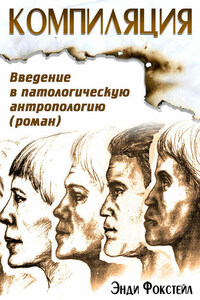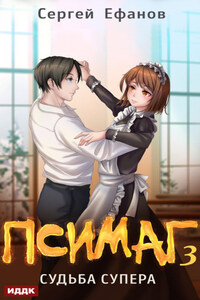CHAPTER I
LOVE AT FIRST SIGHT
I could fancy it was only yesterday! That first time I saw them. And to think how many years ago it is really! And how many times I have told the story – or, perhaps, I should say the stories, for after all it is only a string of simple day-by-day events I have to tell, though to me and to the children about me they seem so interesting and, in some ways, I think I may say, rather out of the common. So that now that I am getting old, or 'beginning to think just a tiny bit about some day getting old,' which is the only way Miss Erica will let me say it, and knowing that nobody else can know all the ins and outs which make the whole just as I do, and having a nice quiet time to myself most days (specially since dear tiresome little Master Ramsey is off to school with his brothers), I am going to try to put it down as well as I can. My 'as well as I can' won't be anything very scholarly or fine, I know well; but if one knows what one wants to say it seems to me the words will come. And the story will be there for the dear children, who are never sharp judging of old Heather – and for their children after them, maybe.
I was standing at our cottage door that afternoon – a beautiful summer afternoon it was, early in June. I was looking idly enough across the common, for our cottage stood – stands still, perhaps – I have not been there for many a year – just at the edge of Brayling Common, where it skirts the pine-woods, when I saw them pass. Quite a little troop they looked, though they were scarcely near enough for me to see them plainly. There was the donkey, old Larkins's donkey, which they had hired for the time, with a tot of a girl riding on it, the page-boy leading it, and a nursemaid walking on one side, and on the other an older little lady – somewhere about ten years old she looked, though she was really only eight. What an air she had, to be sure! What a grand way of holding herself and stepping along like a little princess, for all that she and her sisters were dressed as simple as simple. Pink cotton frocks, if I remember right, a bit longer in the skirts than our young ladies wear them now, and nice white cotton stockings, – it was long before black silk ones were the fashion for children, – and ankle-strap shoes, and white sun-bonnets, made with casers and cords, nice and shady for the complexions, though you really had to be close to before you could see a child's face inside of them. And some way behind, another little lady, a good bit shorter than Miss Bess – I meant to give all their names in order later on, but it seems strange-like not to say it – and looking quite three years younger, though there was really not two between them. And alongside of her a boy, thin and pale and darkish-haired – that, I could see, as he had no sun-bonnet of course, only a cap of some kind. He too was a good bit taller than Miss – , the middle young lady I mean, though short for his age, which was eleven past. They were walking together, these two – they were mostly always together, and I saw that the boy was a little lame, just a touch, but enough to take the spring out of his step that one likes to see in a young thing. And though I couldn't see her face, only some long fair curls, long enough to come below the cape of her bonnet, a feeling came over me that the child beside him was walking slow, keeping back as it were, on purpose to bear him company. There was something gentle and pitying-like in her little figure, in the way she went closer to the boy and took his hand when the nurse turned round and called back something – I couldn't hear the words but I fancied the tone was sharp – to the two children behind, which made them press forward a little. The other young lady turned as they came nearer and said something with a sort of toss-up of her proud little head to the nurse. And then I saw that she held out her hand to her younger sister, who kept hold all the same of the boy's hand on the other side. And that was how they were walking when they went in among the trees and were lost to my sight.
But I still stood looking after them, even when there was nothing more of them to be seen. Not even the dog – oh, I forgot about him – he was the very last of the party – a brisk, shortish haired, wiry-looking rough terrier, who, just as he got to the entrance of the wood, turned round and stood for a moment barking, for all the world as if he might be saying, 'My young ladies have gone a-walking in the wood now, and nobody's to come a-troubling of them. So I give you fair notice.' He did think, did Fusser, that was his name, that he managed all the affairs of the family. Many a time we've laughed at him for it.
'Dear me,' thought I to myself, 'I could almost make a story out of those young ladies and gentleman, though I've only seen them for a minute, or two at the most.'
For I was very fond of children even then, and knew a good deal about their ways, though not so much – no, nor nothing like – what I do now! But I was in rather a dreamy sort of humour. I had just left my first place, – that of nursery-maid with the family where my mother had been before me, and where I had stayed on older than I should have done by rights, because of thinking I was going to be married. And six months before, my poor Charles had died suddenly, or so at least it had seemed to us all. For he caught cold, and it went to his chest, and he was gone in a fortnight. The doctor said for all he looked strong, he was really sadly delicate, and it was bound to be sooner or later. It may have been true, leastways the doctor meant to comfort me by saying so, though I don't know that I found much comfort in the thought. Not so much anyhow as in mother's simple words that it was God's will, and so it must be right. And in thinking how happy we had been. Never a word or a coldness all the four years we were plighted. But it was hard to bear, and it changed all my life for me. I never could bring myself to think of another.














